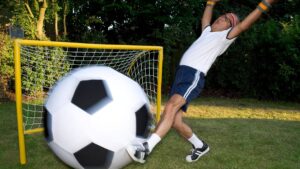ASX Health Stocks: Neuren’s sales come in at top of guidance range, crushing short seller’s claims

Neuren's DAYBUE sales meet target, crushing short seller's claims. Picture Getty
- Neuren’s Daybue sales meet target
- Proteomics granted patent in Europe
- Nyrada’s brain injury drug shows efficacy in animal testing
Neuren’s Daybue sales meet target, crushing short seller’s claims
Neuren Pharma (ASX:NEU) says Q4 2023 sales of Daybue, the first and only treatment approved by the US FDA to treat Rett syndrome, came in at US$87.1 million.
This result is in line with the top end of its previous guidance of between US$80 million to $87.5 million.
This was also the second full quarter of sales since the drug’s US launch in April 2023. Net sales for 2023 since April were US$177.2 million.
For full-year of 2024, Neuren has now guided the market to Daybue net sales of between US$370 million and US$420 million.
Based upon these sales, anticipated royalties to Neuren are:
1/ $12.8 million for Q4, up from $10.4 million for Q3.
2/ $26.8 million for the full year 2023, and
3/ Between $61 million and $70 million for the full year 2024 (assuming Acadia guidance is met and exchange rate of 0.65).
Daybue (or trofinetide) is approved by the FDA for the treatment of Rett syndrome in adult and pediatric patients two years of age and older.
Neuren has granted an exclusive worldwide licence to Acadia Pharmaceuticals for the development and commercialisation of the drug.
In mid February, Neuren’s shares plunged after a scathing report from NYC-based short seller, Culper Research.
Culper alleged that Daybue had been a “total flop” since launch, and has a low patient retention rate.
“The sell-side calls for over $US800 million in peak Daybue revenues, but our research suggests that DAYBUE new patient starts already topped this past summer, peak revenues will be a mere fraction of sell-side estimates,” said Culper.
Neuren released a statement to the ASX on the day to dismiss Culper’s claims, reconfirming the guidance given previously by Acadia.
Neuren also said the retention rate for patients using Daybue is quite high, contrary to the short seller’s claims.
“Acadia updated the data on persistence of DAYBUE treatment, with 76% remaining on therapy after 6 months based on confirmed discontinuations, or 68% based on confirmed discontinuations and patients who were 60 days past their scheduled refill,” said Neuren’s statement.
PIQ gets European patent
Proteomics International (ASX:PIQ) has been granted a European patent for its PIQ’s OxiDx diagnostic test technology.
OxiDx offers a comprehensive solution for monitoring levels of oxidative stress using a simple fingerprick blood test.
The OxiDx test can measure levels of muscle damage using a simple fingerprick blood sample to detect protein biomarkers in the blood.
In professional sports, muscle injuries are the most frequent cause of incapacity, accounting for up to 55% of all injuries. In 2019, $1.4 billion was spent on treating potentially avoidable sports injuries in Australia alone.
PIQ says the European patent is a significant milestone for commercialisation of this innovative technology in the key markets of Europe.
“It is exciting to see the uniqueness of the OxiDx technology being recognised in leading markets, and we look forward to the technology rolling out,” said PIQ’s managing director, Dr Richard Lipscombe.
Nyrada’s brain injury drug shows efficacy
Nyrada’s (ASX:NYR) lead Brain Injury Program drug candidate, NYR-BI03, has demonstrated strong efficacy in reducing injury in a preclinical study in animals.
The study showed a significant neuroprotective signal, providing strong evidence of efficacy for the drug.
Conducted in collaboration with UNSW Sydney, the study involved 16 test animals, which were treated with either NYR-BI03 or vehicle, 30 minutes following induced brain injury, with treatment conducted for 72 hours via continuous intravenous infusion.
The MRI brain imaging results showed that a statistically significant neuroprotection was achieved when animals received NYR-BI03 treatment.
On average, NYR-BI03 therapy rescued 42% of the brain injury in the penumbra region seen in animals receiving vehicle.
Nyrada will now move on to Phase I clinical trial in humans, which is scheduled for the second half of the 2024 calendar year.
Share prices today:
Related Topics

UNLOCK INSIGHTS
Discover the untold stories of emerging ASX stocks.
Daily news and expert analysis, it's free to subscribe.
By proceeding, you confirm you understand that we handle personal information in accordance with our Privacy Policy.








